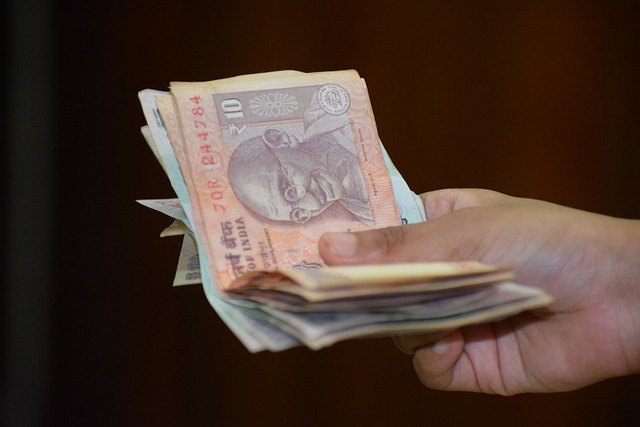Sustainability in Dutch Business Practices: Leading the Way in Green Innovation

The Netherlands has emerged as a global leader in sustainability, with Dutch businesses at the forefront of green innovation and sustainable practices. Known for their forward-thinking approach, Dutch companies are integrating environmental, social, and governance (ESG) principles into their operations, setting an example for the rest of the world. This guide explores the key aspects of sustainability in Dutch business practices, highlighting the strategies, initiatives, and success stories that make the Netherlands a pioneer in sustainable business.
1. Commitment to the Circular Economy
The Netherlands is a trailblazer in the circular economy, which focuses on minimizing waste and maximizing resource efficiency. Dutch businesses are adopting circular principles to create sustainable value chains.
- Circular Design: Companies are designing products for longevity, repairability, and recyclability. For example, Fairphone produces modular smartphones that are easy to repair and upgrade.
- Resource Recovery: Businesses are developing innovative methods to recover and reuse materials. DSM is a leader in bio-based materials, creating sustainable alternatives to traditional plastics.
- Collaborative Platforms: The Dutch government and businesses are collaborating on platforms like Circular Economy in the Netherlands to share knowledge and best practices.
2. Renewable Energy and Carbon Neutrality
Dutch businesses are committed to reducing their carbon footprint and transitioning to renewable energy sources.
- Wind and Solar Power: Companies are investing in wind and solar energy projects. Eneco, a Dutch energy company, is a leader in renewable energy production and distribution.
- Carbon Neutrality: Many Dutch companies have set ambitious targets to achieve carbon neutrality. ING aims to be net-zero by 2050 and is actively financing green projects.
- Energy Efficiency: Businesses are implementing energy-efficient technologies and practices to reduce energy consumption. Philips has made significant strides in energy-efficient lighting solutions.
3. Sustainable Agriculture and Food Systems
The Netherlands is a global leader in sustainable agriculture, with businesses pioneering innovative solutions to feed the world sustainably.
- Precision Farming: Companies are using precision farming techniques to optimize resource use and reduce environmental impact. Agrifirm provides sustainable feed and crop solutions for farmers.
- Vertical Farming: Dutch businesses are leading the way in vertical farming, which maximizes space and reduces water and pesticide use. PlantLab is a pioneer in this field, growing crops in controlled environments.
- Sustainable Food Production: Companies are focusing on sustainable food production methods. Unilever has committed to sourcing 100% of its agricultural raw materials sustainably.
4. Green Building and Urban Development
Dutch businesses are at the forefront of green building and sustainable urban development.
- Energy-Efficient Buildings: Companies are designing and constructing energy-efficient buildings. BAM Bouw en Techniek specializes in sustainable construction projects.
- Smart Cities: Dutch businesses are developing smart city solutions to improve urban sustainability. TNO is working on smart mobility, energy, and infrastructure projects.
- Green Infrastructure: Businesses are integrating green infrastructure, such as green roofs and urban gardens, into their projects. Dakdokters specializes in green roof installations.
5. Sustainable Supply Chains
Dutch businesses are prioritizing sustainability in their supply chains, ensuring ethical and environmentally friendly practices.
- Ethical Sourcing: Companies are committed to ethical sourcing of materials. Tony’s Chocolonely is known for its fair trade chocolate, ensuring fair wages and working conditions for cocoa farmers.
- Transparency and Traceability: Businesses are using technology to enhance supply chain transparency. Ahold Delhaize is implementing blockchain technology to track the sustainability of its products.
- Supplier Engagement: Companies are working with suppliers to improve sustainability practices. Heineken has a Supplier Code that outlines sustainability expectations for its suppliers.
6. Corporate Social Responsibility (CSR)
Dutch businesses are integrating CSR into their core strategies, focusing on social and environmental impact.
- Community Engagement: Companies are actively engaging with local communities to support social initiatives. Rabobank invests in community development projects and sustainable agriculture.
- Employee Well-being: Businesses are prioritizing employee well-being and diversity. ING has comprehensive programs to support employee health, diversity, and inclusion.
- Sustainable Investments: Dutch financial institutions are leading the way in sustainable investments. ABN AMRO offers green investment products and supports sustainable projects.
7. Innovation and Collaboration
Innovation and collaboration are key drivers of sustainability in Dutch business practices.
- Public-Private Partnerships: The Dutch government, businesses, and research institutions collaborate on sustainability initiatives. Top Sector Energy is a public-private partnership focused on energy innovation.
- Innovation Hubs: The Netherlands has established innovation hubs to foster sustainable business practices. Amsterdam Sustainability Institute supports research and innovation in sustainability.
- Knowledge Sharing: Businesses are sharing knowledge and best practices through platforms like MVO Nederland, which promotes CSR and sustainability.
8. Success Stories
Several Dutch companies exemplify the country’s commitment to sustainability:
- ASN Bank: A pioneer in sustainable banking, ASN Bank invests exclusively in projects that have a positive social and environmental impact.
- Interface: A global leader in sustainable flooring, Interface has set ambitious goals to achieve a negative carbon footprint by 2040.
- Triodos Bank: Triodos Bank is a leader in ethical banking, financing projects that benefit people and the planet.
9. Tips for Embracing Sustainability in Business
If you’re looking to integrate sustainability into your business practices, consider the following tips:
- Set Clear Goals: Define clear sustainability goals and integrate them into your business strategy.
- Engage Stakeholders: Involve employees, customers, and suppliers in your sustainability initiatives.
- Measure and Report: Track your sustainability performance and report on your progress transparently.
- Innovate and Collaborate: Invest in innovation and collaborate with other businesses, governments, and research institutions to drive sustainability.


